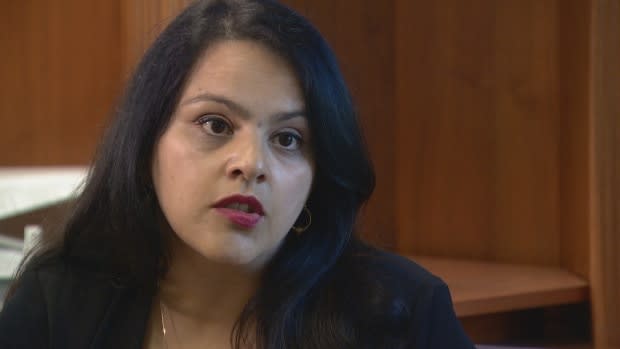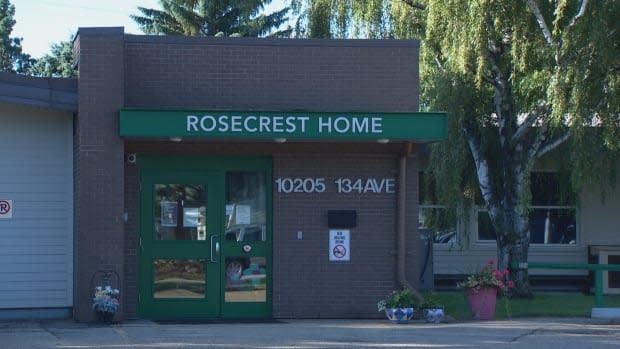Lack of transparency alleged as province reviews home for severely disabled children
Parents, guardians and former staff say the Alberta government has not been forthcoming about its plans for a home for medically fragile children with severe disabilities.
Rosecrest Home, currently run by provincial employees, is a residential facility in north Edmonton that provides around-the-clock care for 17 children.
On June 10, parents and guardians learned that the government is exploring "alternative service delivery models" for Rosecrest and other provincially run facilities for people with disabilities in Edmonton and Calgary.
The email sent by Lynn Bell, director of disability services, said a 90-day consultation had begun with the Alberta Union of Provincial Employees, which represents many staff at these facilities. The email assured recipients that "no decisions have been made at this time" and "services will continue as usual."
On July 17, the province issued a request for information — a precursor to a formal request for proposals — to gauge interest from non-profit organizations and private companies on the "potential transitioning" of these services from the government to a contracted third-party provider.
The RFI said the successful vendor could potentially take over Rosecrest or move residents to their existing facilities, if the government decides to take that route.
In an interview with CBC News on Wednesday, Community and Social Services Minister Rajan Sawhney said her ministry is on a fact-finding mission and has no pre-determined result in mind.
"The whole consultation is all about gathering data and information and hearing feedback, because we need to have that in place before any kinds of decisions are made — if any decisions are made at all," she said.
Those assurances provided little comfort for the parents and guardians of vulnerable children who require constant attention and monitoring by physicians, nurses and health-care aides.
Sawhney met with a group of them in June after they watched question period from the public gallery of the legislature. They were there as guests of St. Albert MLA Marie Renaud, the NDP critic for community and social services, who challenged the minister to meet with them. Sawhney spoke with them for 20 minutes that day.
Brenda Waluk was one of the guardians who met the minister that day. She said she can't understand why the government wants to change a model that has provided excellent care for her 12-year-old granddaughter, Taylor.
Waluk said the government has not been forthcoming about its plans for Rosecrest.
"We have not been consulted whatsoever other than a seven-question survey, which is very brief and does not pinpoint care at this facility," Waluk said in an interview with CBC News.
"They're not being transparent in the process."

Sawhney acknowledged she has heard concerns from parents and guardians but said the government isn't hiding anything.
"There is always room for improvement," she said. "But certainly from a transparency perspective, we have been transparent."
Sawhney said she will make a decision after the 90-day consultation period ends in September. She said she has already had phone calls with several parents and guardians and is setting up more meetings.
The survey Waluk referred to was only a starting point in the consultation, Sawhney said.
'These caregivers know every move'
On a recent sunny morning, Waluk visited Taylor in the back garden of Rosecrest home.
Wearing a pink T-shirt and butterfly-patterned leggings, Taylor sat in her wheelchair as Waluk stroked her hand and smoothed her braid of long, dark hair.
Other children sat in their wheelchairs near a water feature or under a pavilion on the lawn.
Staff members moved quietly among the children, checking on them and administering care.
Waluk said many of the staff have worked at Rosecrest for years and know the children well.
"These caregivers know every move. They know the behaviour signs," she said. "They know everything about the children here, including my granddaughter."
"My daughter and I and the rest of our family can be comfortable knowing that Taylor is cared for and she's loved here."
Taylor has been involved with Rosecrest for almost her entire life. After starting with respite care as a baby, she moved into the facility full-time six years ago.
Like the other 16 residents, Taylor requires nursing care around the clock.
She is legally blind, and can't speak nor move on her own. She gets nourishment via a gastostromy or g-tube.
Waluk is terrified of what might happen if her granddaughter is moved to a privately run facility with fewer staff.
Sandy Walsh-Shuurman worked at Rosecrest for nearly three decades before retiring at the end of January as the nurse team lead in charge of the facility.
She is also concerned about what would happen to the Rosecrest children, particularly if they are transferred to other facilities.
"I truly believe that if some of these kids are moved they will die," Walsh-Shuurman said.
She said some of the children would likely have to return to the hospital because their conditions would make it difficult to place them in foster homes or community settings.
Some children need ventilators. Walsh-Shuurman said having a nurse available at Rosecrest around the clock means problems can be handled as they occur.
"Those aren't services that are as easily replicated in the community," she said.
"So I suspect that some of these kids would go back to living at the Stollery (Childrens' Hospital), which is not an appropriate placement."

Sawhney recently visited Rosecrest to see the facility and meet the children. She said she realizes what is at stake.
"I'm a mother of four, so I would never, ever make any decision that would put any child or anyone in harm's way," she said. "And that's why I wanted to make sure I undertook that visit."
Give kids a choice
AUPE, which represents about 50 employees of Rosecrest, said ministry officials have not disclosed the relevant information required for the 90-day consultation process, which is required under the collective agreement.
Union vice-president Kevin Barry said information normally would include what the government is planning, the reasons for the desired change, what services a third-party contractor could provide and the cost savings involved.
That hasn't yet happened, he said. He said there has only been one meeting so far.
"We've requested information. We've made multiple requests and we've really got no information to this point," Barry said.
Sawhney said that isn't true. She said she has been following the process closely and knows her officials have supplied information to the union. She said the government is waiting for a response from AUPE.
While government officials and union leaders continue their consultation, parents, guardians and staff wonder what will happen to Rosecrest in the coming months.
Waluk said she will continue speaking out so her granddaughter and the other children can stay at Rosecrest with the staff who have cared for them for years.
"They've never in their life had a choice of what they can do, what they can live with," she said.
"I would like to give these children that choice, so that they can stay here and get the same kind of care that they have gotten for the last number of years."


